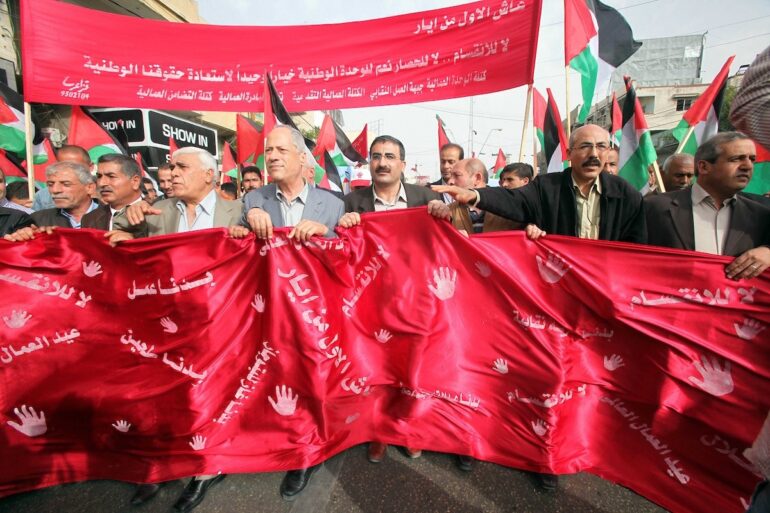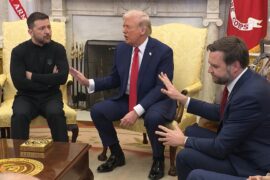Five left-wing Palestinian factions have announced the formation of a united front called the Palestinian Democratic Alliance.
According to last Friday’s edition of Al-Ittihad, the daily newspaper of the Communist Party of Israel (CPI), the alliance has been formed to offer an alternative to the political dominance of Fatah and Hamas over Palestinian society.
The member organizations include the Marxist Palestinian People’s Party (PPP), the Popular Front for the Liberation of Palestine (PFLP), the Democratic Front for the Liberation of Palestine (DFLP), the Palestinian National Initiative (PNI), the Palestinian Democratic Party (PDP), as well as a number of independent public figures such as Omar Assaf and Mamdouh al-Akr.
The alliance actually began in the summer of 2016 but required two years of meetings between the constituent organizations to solidify its positions. Its offices in both Ramallah and Gaza city continue to hold regular meetings in order to coordinate its political efforts.
Khaled Mansour, a member of both the political bureau of the PPP and the founding committee of the Palestinian Democratic Alliance, said that the latter’s activities would be launched in early 2019 with mass rallies in both the West Bank and Gaza region.
The Palestinian public will also be called upon to participate in non-violent marches in protest of Israeli policies in the West Bank.
Mansour said that the alliance has prepared a political and social program that addresses a number of key issues related to Palestinian society and defending the rights of Palestinian civilians from oppression by Hamas in Gaza and the American-backed Fatah in the West Bank.
The unification of leftist Palestinian factions into a strong alternative to Fatah and Hamas presents an opportunity for Israeli nationalists struggling to resist American and European efforts to partition the country into two separate states.
Prime Minister Binyamin Netanyahu (Likud) clearly thrives from the status quo, especially the fact that Palestinians lack real political leadership. The Fatah-led Palestinian Authority survives only due to Israel’s protection and Hamas is a valuable antagonist for Netanyahu to rally the nation against.
But many ministers and lawmakers within the Likud and other parties have demonstrated a less cynical approach to Palestinian issues. Also within the West Bank Jewish activist community, many have rejected not only partition but also the status quo in favor of moving towards a one state solution.
While many of the factions comprising the Palestinian Democratic Alliance have difficult histories of political violence against Israeli citizens, they do not fit the profile of Islamic terrorism often used by Israeli political figures to paint Palestinian society. But the alliance’s rejection of the West’s two-state agenda presents an opportunity for Jewish nationalists championing a one state vision.
Many prominent Israeli leaders, including President Reuven Rivlin (Likud), Rabbi Yehuda Glick (Likud), Caroline Glick (HaYamin HeḤadash), Uri Ariel (National Union), Tzipi Ḥotoveli (Likud) and even the late Moshe Arens (Likud), have expressed support for a single Jewish state between the river and sea, with citizenship and equality for Palestinians.
It is precisely the Jewish leaders that take this position who should be engaging the newly united Palestinian left around a vision for peace based on the principles of a single state.
If such engagement were to be initiated, the new Palestinian alliance would have to resist the temptation to portray Israelis as foreign colonizers and instead recognize the Jewish roots in this land.
If that could be accomplished, the chances are high for both sides to recognize the external forces oppressing both peoples and continuously pushing us into conflict with one another. If Palestinian leftists and Jewish nationalists can succeed at recognizing one another’s stories and identities, it might even become possible to initiate a shared struggle against those working to partition the country into separate states.





